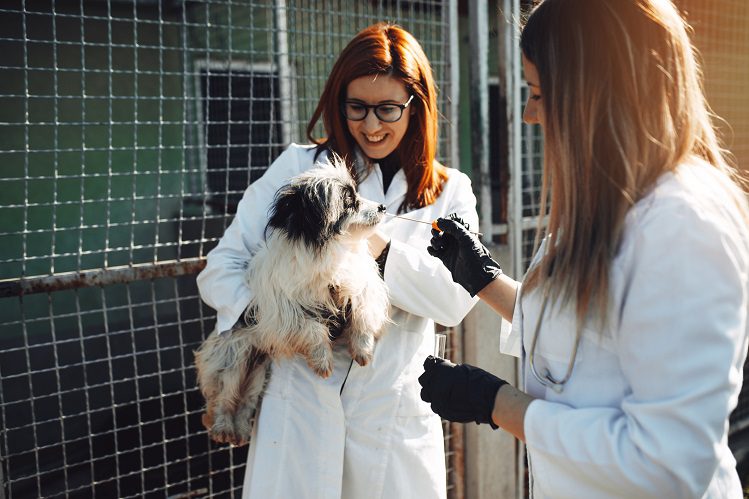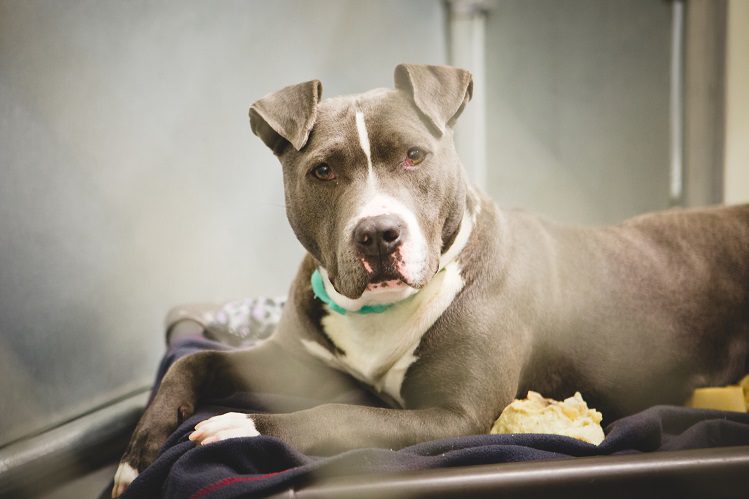
5 myths about shelter dogs
Most people who dream of a four-legged family member do not want to go to dog shelters and look for a pet there. They are driven by the stereotype that dogs in shelters are evil, wild, sick and uncontrollable. And some are sure that it is completely dangerous to start a former guest of the shelter: if he doesn’t bite, he will infect him with something.
In fact, all of the above is a delusion. Yes, after shelter dogs need adaptation, but they are no worse than dogs bought from breeders. Let’s dispel common myths so that in the future you will definitely not be afraid to contact shelters.
- Myth 1. Dogs in shelters are mean, unruly and wild.
Dogs from a shelter can, however, have mental problems if they have previously suffered from the cruel treatment of a person or their own relatives. But in a caring and responsible family, the dog will quickly realize that nothing threatens her.
The behavior of even an aggressive dog can be corrected with the help of a competent dog behavior specialist and zoopsychologist. The mental wounds of a dog are directly related to his behavior! The main thing is your love, understanding, time and a sincere desire to help your tailed friend.
So that the pet’s behavior does not become an unpleasant surprise for you, it is important to learn as much as possible about its past: in what conditions the dog previously lived, whether it had owners and how they treated it, whether the dog lived on the street and for how long. All this will help to find an approach to the dog and facilitate its adaptation.

- Myth 2. Shelter dogs are ill-mannered and not trained.
In shelters where dogs are treated responsibly, their guests are taught basic commands. It’s easier for the employees themselves if the dogs obey them and observe discipline. As a rule, this work is carried out by volunteers who supervise more than one dog. But, unfortunately, there are few volunteers, and there are many dogs living in shelters. Therefore, not every shelter has the opportunity to socialize a dog.
Do not forget that not all four-legged animals in shelters are outdoors. There are also domestic dogs, which the owners trained and trained.
It often happens that a dog from a shelter is more well-mannered and calm than a purebred dog, which the owners do not care for.
- Myth 3. Animals in shelters are all sick and contagious
This is not true. Getting to the shelter, the dog is never placed immediately with relatives: first, it goes through quarantine. At this time, employees assess the state of her health, monitor her, and make the necessary vaccinations. After the examination, it becomes clear whether the dog needs treatment or not. A sick animal will never be placed with other individuals so that they do not become infected. The newly minted guest must be castrated or sterilized: the shelter does not need additions to the dog family.
If the dog is injured, then it is operated on and placed in calm conditions until full recovery. Injuries can be not only physical, but also mental. Then the volunteers work with the animal, socialize it, spend more time with it.
- Myth 4. Only adult and old dogs are in shelters.
Unfortunately, some negligent owners do not want to spend money and time on elderly pets, so they throw them out into the street, from where the poor fellows get to shelters. But the same thing happens with unwanted offspring – puppies. People toss them at the door of pet stores, veterinarians and, of course, shelters to save themselves the hassle. Therefore, there are also enough young animals in shelters.
A puppy, of course, has more chances to find a family, but old people also really need care, affection and attention. An elderly dog will be wholeheartedly grateful to the new owners, who, in her old age, gave her home warmth and support.
- Myth 5. There are only mongrel dogs in shelters.
For various reasons, purebred pedigreed dogs end up in shelters. These can be “loses” who never found owners, and sometimes a purebred dog is simply kicked out of the house because she is tired, caused an allergy, or for other reasons has become objectionable.
In large cities, you can find shelters that specialize in a certain breed of animals. On the Internet, you can find a help group for a particular breed. This is an association of people who rescue from the street or from some difficult situations, treat and adopt dogs of a certain breed. Every dog at the shelter has a story to tell. For some, it can be the simplest and most unremarkable, but for someone it can be truly tragic.

One way or another, adopting a dog from a shelter is a responsible and serious choice for which you must be fully prepared. And do not hesitate – any dog, even with the most difficult fate, will certainly thank you for your kindness and love, even if not immediately.





